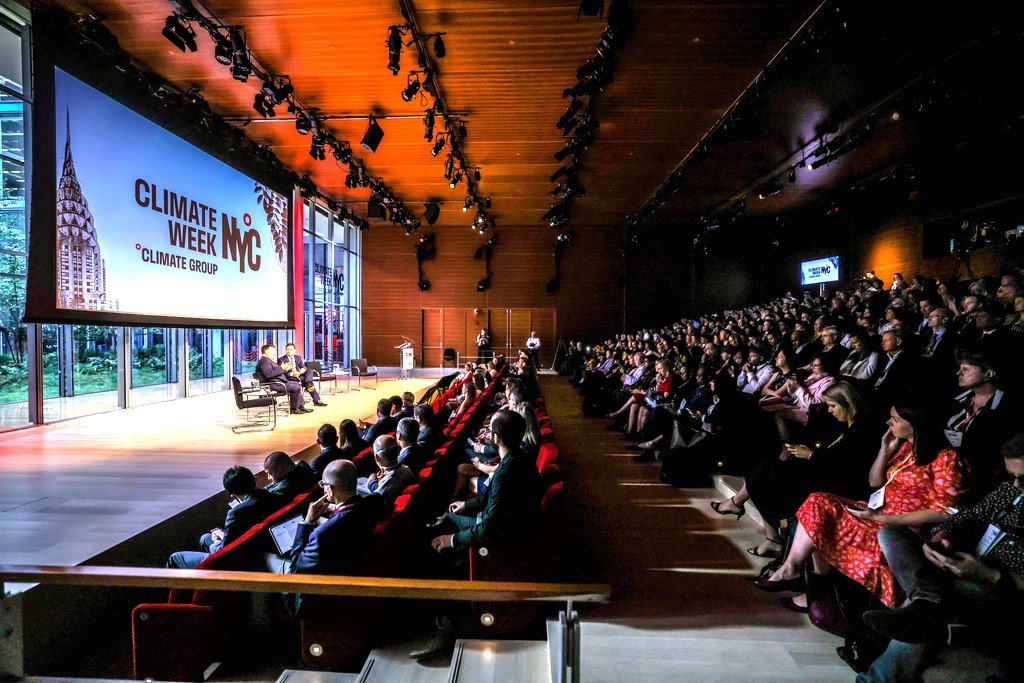In Conversation with Guido Schmidt-Traub: From New York Climate Week to COP28
A couple of weeks ago, civil society groups, companies, government leaders, and global institutions met at New York (NY) Climate Week to discuss how to accelerate action on tackling climate change. Amongst attendees, was Guido Schmidt-Traub, Managing Partner at Systemiq, Regeneration Board Member, and recognized leader in sustainable development, impact investment, and land use systems. We caught up with Guido to discuss NY Climate Week and reflect on what we can expect from COP28.
Image source: The Climate Group (EP100 events and webinars)
Key takeaways…
We must act now
“The urgency to act was clear from everyone” explained Guido. “We had scientists presenting new data, and an update on the planetary boundaries. It was also the year where we have broken all temperature records; predicted to be worse next year as a result of El Niño”.
Guido highlighted some promising developments at NY Climate Week. For example, there was a lot of emphasis put on the new ecological transformation plan that Brazil has put forward “to halt deforestation, increase productivity and transform the broader economy”. Guido explained that “within just a few months, the Government of Brazil has already managed to halve deforestation rates, primarily through law enforcement and clear policy signals from Brasilia”.
Working with nature to tackle climate change is an important approach to achieve change at the scale needed. As Guido puts it, “Natural ecosystems are clearly suffering, but this is also where the fastest emissions reductions can be achieved – as shown by the case of Brazil.”
We need innovative financing mechanisms for climate action and green supply chains
Another key discussion at NY Climate Week was how to attract more finance into climate action, and more specifically, into sustainable agricultural supply chains.
Guido commented that whilst there is “wide consensus for more public financing, this is always going to be insufficient”. For Guido, the biggest lever of change will be mobilizing more financing through corporate supply chains, complemented by public financing, financing from financial institutions, and carbon financing.
And to leverage this finance we need innovative mechanisms. Guido explains, “This question around how we can design mechanisms to attract commercial and institutional funding into supply chains, is ultimately what Regeneration has been trying to answer over the last few years, working across the critical tropical forest commodities. In this respect, Regeneration is one of the leading players in this space.”
We need to get better at working together
Multi-stakeholder action and cooperation amongst different stakeholders is an essential part of climate transformation, but it takes time and practice.
NY Climate Week exemplified to Guido, that “we, as Regeneration, need to understand how to work more closely with governments, not to set policies, but in how we can support governments to scale up investments within their jurisdictions”.
In addition, private and public financiers need to work together to deliver the innovative financing mechanisms needed, and any climate solution must put the needs and expertise of local stakeholders, from growers to cooperatives, at its heart.
Looking ahead…
“People don’t want to hear about the challenges – people want to hear about the solutions. That is where Regeneration is well prepared and positioned”, Guido explained. For example, the Regeneration team has an 8-year track record working on Partnerships for Forests to incubate nature-based solutions, alongside more recent experience working with returnable grants under the Rebuild Facility to scale sustainable cocoa and coffee value chains.
Looking ahead to COP-28, Guido commented that whilst “it is true that there will be a stronger focus on energy and finance, nature is naturally an important part of the COP agenda”. Guido added that it will be important in future discussions, “not to draw false distinctions between the nature and climate agenda. Everything that happens in the agriculture and nature space, is of course related to climate action.”
Regeneration is a partnership between Systemiq, the system change company, and Palladium, a global implementer of development programs.

